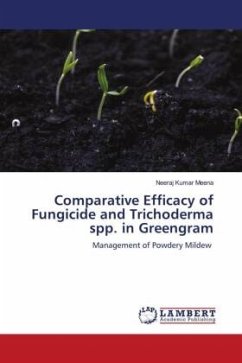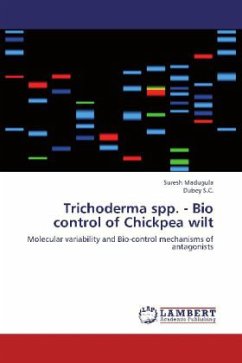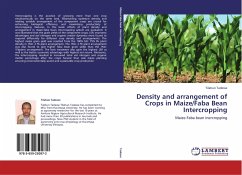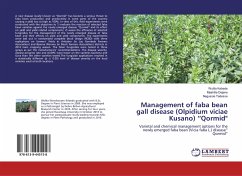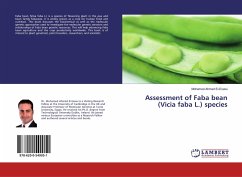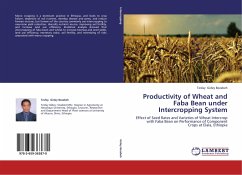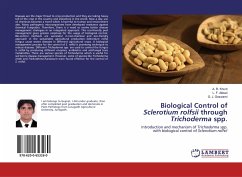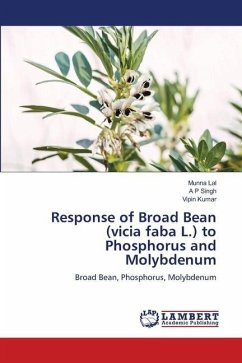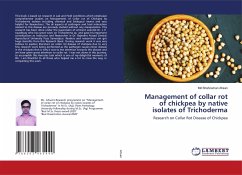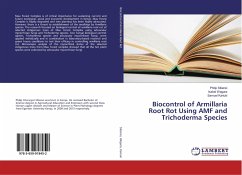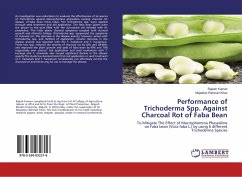
Performance of Trichoderma Spp. Against Charcoal Rot of Faba Bean
To Mitigate The Effect of Macrophomina Phaseolina on Faba bean (Vicia faba L.) by using 6 different Trichoderma Species
Versandkostenfrei!
Versandfertig in 6-10 Tagen
24,99 €
inkl. MwSt.

PAYBACK Punkte
12 °P sammeln!
An investigation was undertaken to evaluate the effectiveness of six species of Trichoderma against Macrophomina phaseolina causing charcoal rot disease of faba bean (Vicia faba). The Trichoderma spp. were applied through seed treatment and soil application. The faba bean plants were the grown in the pots filled with the autoclaved soil infested with M. phaseolina. The Faba plants showed symptoms coupled with stunted growth and chlorotic foliage. Trichoderma spp. suppressed the symptoms of charcoal rot. The decrease in the disease severity, however, varied with Trichoderma spp. and method of a...
An investigation was undertaken to evaluate the effectiveness of six species of Trichoderma against Macrophomina phaseolina causing charcoal rot disease of faba bean (Vicia faba). The Trichoderma spp. were applied through seed treatment and soil application. The faba bean plants were the grown in the pots filled with the autoclaved soil infested with M. phaseolina. The Faba plants showed symptoms coupled with stunted growth and chlorotic foliage. Trichoderma spp. suppressed the symptoms of charcoal rot. The decrease in the disease severity, however, varied with Trichoderma spp. and method of application. Greater decrease in the disease severity was reported with the T. hamatum and T. harzianum. These two spp. reduced the severity of charcoal rot by 42% and 58-60%, and improved the plant growth and yield of faba bean by 40% and 70% respectively over control. Soil application and seed treatments with T. koningii and T. atroviride also caused significant decline in the disease severity.The study has demonstrated that soil application or seed treatment of T. hamatum and T. harzianum considerably can effectively control the charcoal rot and hence may be use to manage the disease.



